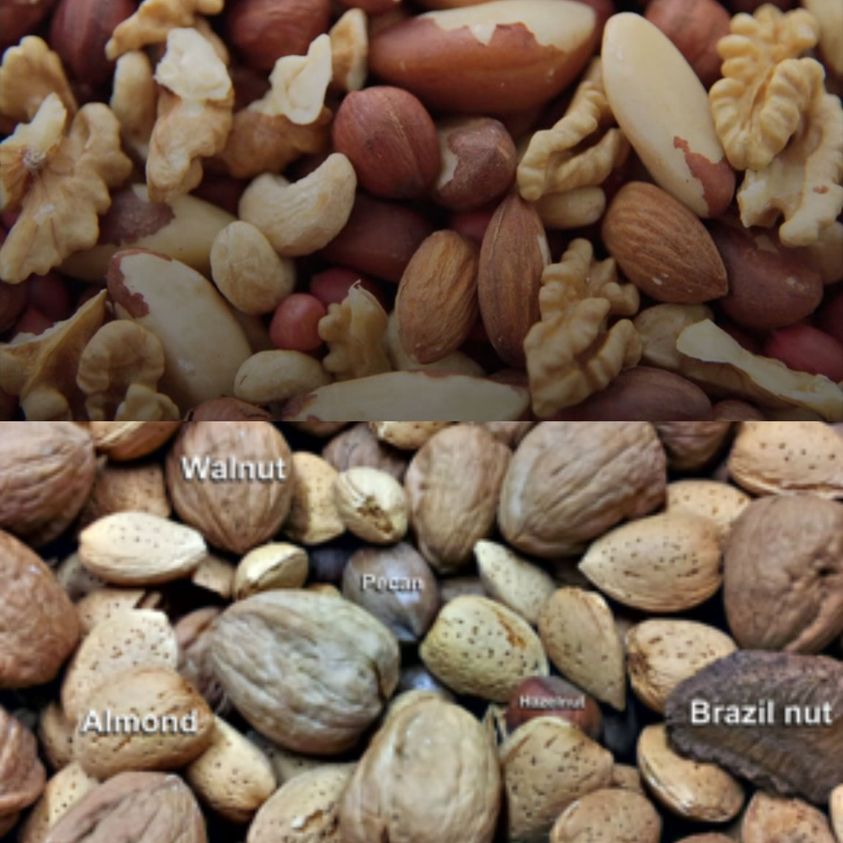ADVERTISEMENT
Introduction: Nuts are prized for their nutritional value and versatility in various cuisines. However, not all nuts are created equal, and some may pose risks or trigger allergies for certain individuals. In this guide, we’ll explore six nuts that are beneficial for health and culinary delight, along with six that require caution due to potential allergenic properties or other considerations.
Embracing Nutritional Powerhouses:
- Almonds: Rich in healthy fats, fiber, protein, vitamin E, and magnesium, almonds are a versatile nut that promotes heart health and aids in weight management.
- Walnuts: Packed with omega-3 fatty acids, antioxidants, and essential nutrients, walnuts support brain health, reduce inflammation, and improve heart function.
- Pistachios: These green gems are loaded with protein, fiber, and potassium, making them beneficial for heart health, weight management, and blood sugar control.
- Cashews: Creamy and delicious, cashews are a good source of healthy fats, protein, and minerals like zinc and magnesium, supporting immune function and bone health.
- Brazil Nuts: Known for their selenium content, brazil nuts are essential for thyroid function, immune health, and antioxidant protection against oxidative stress.
- Hazelnuts: Hazelnuts are rich in antioxidants, vitamins, and minerals like vitamin E and manganese, promoting skin health, reducing inflammation, and supporting bone density.
Approaching with Caution:
- Peanuts: While technically legumes, peanuts are often classified as nuts due to their similar nutritional profile. However, they can trigger severe allergic reactions in susceptible individuals.
- Tree Nuts: Tree nuts like pecans, macadamia nuts, and pine nuts can also cause allergic reactions in some people, ranging from mild to severe symptoms.
- Coconut: Although technically a fruit, coconuts are often categorized as nuts due to their hard shell. While coconut is generally well-tolerated, some individuals may have allergies or sensitivities to coconut products.
- Chestnuts: Chestnuts are a starchy nut that is often roasted and enjoyed during the holiday season. While they are generally safe, some individuals may experience allergic reactions.
- Ginkgo Nuts: Ginkgo nuts, derived from the ginkgo biloba tree, contain toxins that can cause adverse effects when consumed raw or improperly processed.
- Bitter Apricot Kernels: Bitter apricot kernels contain amygdalin, a compound that can release cyanide when metabolized. Consuming large quantities can be toxic and potentially fatal.
Conclusion: Navigating the world of nuts involves embracing the nutritional powerhouses that offer health benefits while approaching with caution those that may pose risks, especially for individuals with allergies or sensitivities. By incorporating a variety of nuts into a balanced diet and being mindful of potential allergens or toxins, individuals can enjoy the diverse flavors and health benefits that nuts have to offer.
Navigating Nut Choices for Blood Sugar Management
Maintaining stable blood sugar levels is crucial for overall health, especially for individuals with conditions like diabetes or insulin resistance. While nuts are generally considered healthy, some varieties may have a greater impact on blood sugar levels than others. In this guide, we’ll explore nuts that may not be ideal for managing blood sugar levels and offer alternatives for those seeking to maintain stable glucose levels.
Nuts to Approach with Caution for Blood Sugar Management:
For Complete Cooking STEPS Please Head On Over To Next Page Or Open button (>) and don’t forget to SHARE with your Facebook friends
ADVERTISEMENT
ADVERTISEMENT
